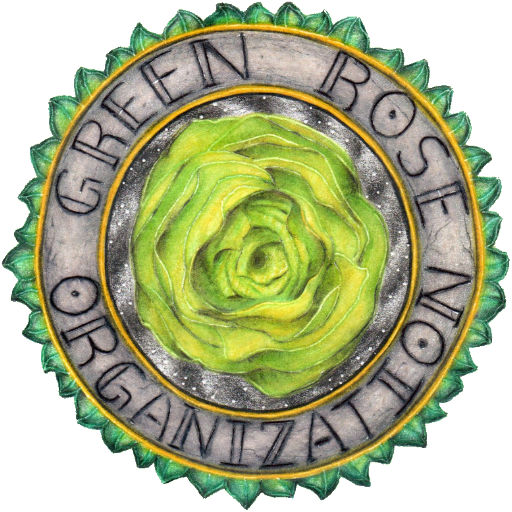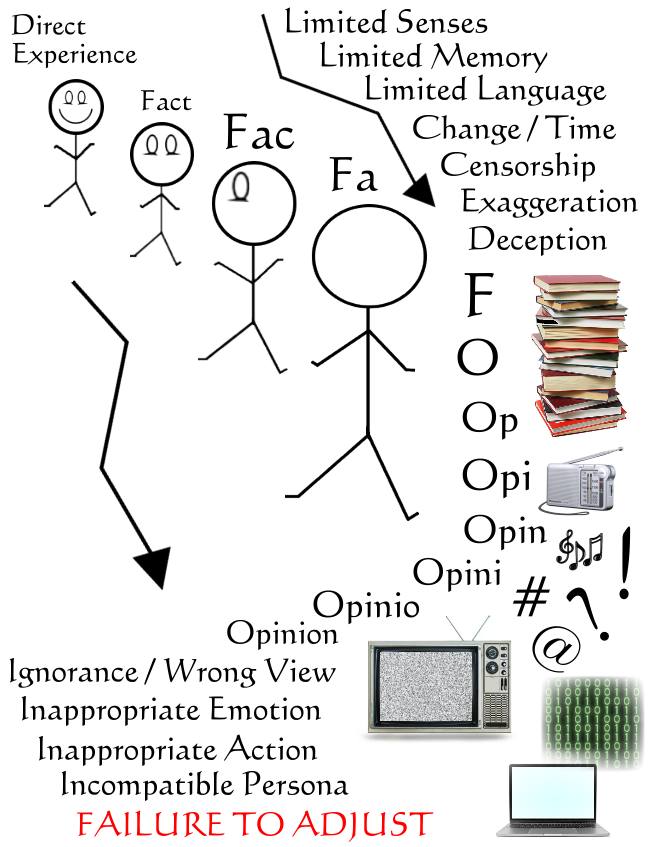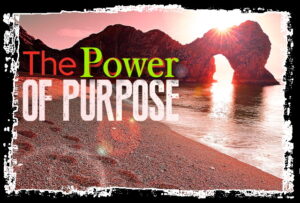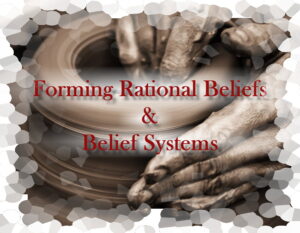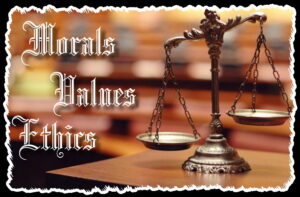UNDERSTANDING BELIEFS
by Shawn Malzahn
Beliefs are very important for many different reasons. It is because of our various beliefs and much broader belief systems that we do the various things that we do in life, no matter what that something may be, there are always a bundle of beliefs behind any course of action, or essentially many different reasons as to why we even chose to do the things that we do in the first place. For example, I’m writing this essay now because I believe that it will stand to benefit a very many people in the future days to come, and that belief of mine makes me feel good inside, it fills me with passion and ambition, which acts as the fuel, or force, or energy, that allows me to move forward into taking the initial action of actually writing this essay all the way out to the very end of its conclusion, and to the best of my ability at that. That my friends is what you would call motivation, and all that motivating power stems from a single belief, or essentially a conviction that I have chosen to hold onto dearly based on my past experiences in life. However, beliefs can be just as disempowering as they are empowering, and that is why it is very important that we should become mindful of a few things in regard to beliefs in general. Hopefully by the end of this lesson we will have a better understanding of what exactly a belief even is, how they come to be formed within our own minds, and how these beliefs then go on to create feelings inside ourselves, which then inspire us to take further action in many different ways of speech and body. By the end of our conclusion, I hope that you will begin to earnestly (and honestly) start questioning your very own personal beliefs about yourself, other people, and about the world at large, as well as your relationship to it, seriously challenging them in order to see if they are even worth while holding on to, or if perhaps a change of mind might be in order.
Our belief systems are essentially composed of many different individual beliefs. We might say that we could break down our belief systems into three broad categories, such as: beliefs about our very own self, beliefs about other people, and beliefs about our external environment. We can then break down these very broad categories into virtually infinite subcategories, which would then contain beliefs about absolutely everything that we have come to experience in our lives thus far. These massive accumulations of individual beliefs, and various belief systems, collectively shape our perspectives of reality, as well as our subsequent attitudes toward every single event experienced within our field of personal perception. This obviously directly correlates to how we feel inside emotionally, which is why we need to take certain precaution when forming our beliefs, as well as sharing them with others, because these beliefs will eventually go on to inspire behaviors and actions that will have very real consequences for us in life, whether that be good or bad, beneficial or not, it does not matter, because the Law of Cause and Effect in our Universe is quite indifferent and unbiased when it comes to such things. In other words, every action has a reaction, and every cause WILL produce an effect, regardless of the nature of the cause that set the effect in motion. It does not matter if the cause be bad or good, because the Universal Law of Cause and Effect will take a bad, or negative, or unbeneficial cause, or action, or behavior, or whatever you want to call it, and it will then simply extrapolate, or expand that cause into a new negative variation of itself, which is what we would then call the effect of that cause, simply a magnified reflection of the cause, although not identical, but rather similar in characteristic. Also, I would like for you to keep in mind the fact that beliefs are essentially made of thoughts, and that all thoughts are in reality actually actions of mind, so then let us start to consider the ramifications of these mental causes i.e. thoughts, that we are perpetually setting in motion on a day-to-day basis, and how they are actually affecting not only ourselves, but others as well, on a very real PHYSICAL, measurable, tangible level.
So what exactly is a belief anyway? If these beliefs that we have are of that much importance to us, then we must know EXACTLY what we are dealing with here, right? If we look toward Merriam-Webster as our source of definition, we find the word “belief” as essentially being: a state, or habit of mind in which we place trust, or confidence, in some person or thing. Now notice here the use of the words “trust” and “confidence”. This implies something having to happen in the future before we can rest assured that what have come to place trust in is actually true, yet when that time comes, we may find out that what we once thought to be true is indeed false, and that our initial convictions were rooted in unsound logic due to lack of personal direct experience, for that was the missing ingredient. Thus when most people say that they believe something, what they are really saying is that for some reason or another, they are completely convinced beyond a reasonable doubt that what they claim to be true really is true as if it were some type of scientific fact, even though they themselves have not experienced it directly first hand. Therefore they really DO NOT know whatever it is that they THINK that they know for certain, they only BELIEVE it is so, which is still technically just an opinion at this point, and not real knowledge, because real knowledge MUST be rooted in a PERSONAL DIRECT EXPERIENCE FOR ONE’S OWN SELF, not manufactured by one’s own imagination, and/or the unreliable testimony of some person, or source of unquestioned authority. This is true because it is most likely that the other person’s testimony, and/or supposed source of authority, is actually a belief held by them simply because someone else, or some other source of authority, convinced them of the very same belief that they are now trying to convince you of presently. Either that, or perhaps whatever they are trying to convince you of now is actually a conclusion that they came to while comparing and contrasting many other peoples various beliefs pertaining to that very same topic, which would still only serve to take us even further away from the truth of the matter at hand. In other words, much of what we believe to be true today, is in actuality, just the opinions of other people’s opinions of other people’s opinions, so on and so forth, until maybe, just maybe, we finally come to someone, somewhere, at some time, who actually did have a personal direct experience for themselves, but yet even so, we still know that ABSOLUTELY EVERYTHING in the created physical Universe around us will change and transform over time, nothing lasts forever, hence how can we be so certain that what we once knew to be true yesterday is still true today? Let alone a thousand or more years ago? You see the point I’m trying to make here? I want people to start questioning what they believe more often. How do you really know what you THINK that you know for certain? And how do you know it is not just the opinion of other people’s opinion, handed down going back thousands of years into our history, as an exaggerated and mistranslated offshoot of some ancient person’s direct experience that may or may not have changed over time? What would the margin of error be on something like that? Think about it. Yet let us suppose that what we have just been told and/or introduced to is indeed actually based on sound logic rooted in someone else’s direct personal experience, how does that make it true for us today right now here in the very present? How does it make it OUR personal direct experience? Just because we read about these facts and figures in our textbooks at school does not necessarily mean they are 100% true, nor does it give us the ability to say to someone else that we know these facts as if we ourselves have experienced them first hand. The same idea holds true (and perhaps even more so) for the information we are exposed to on our televisions, radios, magazines and internet articles. How do we know that our various sources of information that we have relied on for so long, as the means by which the vast majority of our beliefs and belief systems have been formed, haven’t been accidentally mistranslated, misrepresented, and/or intentionally exaggerated, censored, or manipulated for that matter, to some degree, for some particular reason? We don’t. To make matters even worse, let us say for a moment that we were fortunate enough to have the actual person who did have the personal direct experience for themselves available right here right now for our very own questioning. At this point we can say that this person really does know the truth about something. So let’s say that we have a Jesus, or a Buddha, or a Muhammad, or Albert Einstein, or Carl Jung, or Sigmund Freud, or Confucius, or whomever, right here in front of us right now, and they were trying to tell us the truth about whatever it is that they know, how could they possibly do so? How could they possibly attempt to teach us what they themselves personally experienced firsthand? First off, they would have to be able to communicate all the many details pertaining to whatever it is that they know based on their personal experience; details that are solely dependent upon his or her own memory of such experience. In other words, Jesus, Buddha, Muhammad, Krishna, etc. would all have to tell us in their own language, very specifically, all the many details of whatever direct experience they had of reality, which could only be done after first having resorted to their own memories of such experience before they could actually attempt to articulate with spoken words whatever it was that they know, and these memories that they must rely upon are only as good as the quality and efficiency of the special senses of perception that recorded the experience in the first place, or rather the quality and efficiency of their eyes, ears, nose, tongue and skin (essentially, all the physical organs that took in environmental vibrations that the brain/mind used to form a representation of reality and subsequent memory thereof). The problem with this is the fact that we already know that our special senses of perception are not entirely and always reliable. For example, take for instance a mirage of water on a desert horizon, as well as the rays of light that are above and below the visible spectrum, such as: infrared, ultraviolet and cosmic rays amongst others. We know that these bands of light or electromagnetic radiation exist, but unfortunately our eyes cannot detect them. There also exist sounds, or acoustic vibrations that escape our ears detection. Ultrasonic frequencies of 20,000 Hertz or grater typically cannot be detected by the ear, but that DOES NOT mean that they don’t actually exist in our very real and physical realities, does it? Of course not! Just as there exist odorless substances that deceive the nose, such as carbon monoxide and other subtle gasses, as well as tactile sensations that we cannot feel with our bodies skin, such as the Earth’s constant gravitational forces being exerted upon us due its extremely fast rotation around its axis. However, let us suppose that our special senses of perception could very well accurately detect absolutely everything that exists in our inner and outer worlds %100 exactly as it is in reality, therefore revealing the Truth of any and all situations and events at all times, we would still be at the mercy of our feeble memories, as it is quite obvious that our memories have been known to frequently fail even the average healthy person by way of simple forgetfulness, not to mention those with say Alzheimer’s, traumatic brain injuries, and/or the degenerative effects of senility (old age). Therefore our memories are proven to be just as unreliable as our physical senses of perception, thus even if we could use our many modes of communication (whether verbal or nonverbal) to accurately convey to another person what we know though personal direct experience, which by the way is impossible, since there isn’t even enough words in all the world languages combined to accurately and efficiently portray the vast array of subtle sensations that we as complex creatures are capable of experiencing, yet even if there was, even if we had a superhuman impeccable vocabulary with infinite words that could describe everything, and even if we had perfect senses of perception that were capable of detecting all environmental vibrations thereby rendering a perfect representation of reality, we would STILL be limited by our fallible memories.
The point I’m really trying to drive home here in this lesson is the fact that we cannot ALWAYS and COMPLETELY rely upon the testimonies of other people to tell us what is REAL, and what is TRUE, and what is RIGHT, and what is WRONG, and what is IMPORTANT, and what is NOT. How can we? Especially since we have just proven that we cannot rely on our very own senses, memories, and abilities to clearly and adequately communicate our complex experiences, which by the way, are the very same powers and faculties that other peoples testimonies rely upon. Therefore there will always be room for doubt, and the potential to develop irrational beliefs and unrealistic expectations pertaining to how we see ourselves, others, and the world in general. This can become a very big problem for us when we take into consideration how our beliefs are actually shaping our perspectives and perceptions of reality, and how these perspectives, or essentially ways of “seeing the world” are actually affecting our feelings, or emotional states, which in turn becomes the motivation that compels us to perform very real, very physical actions, of speech and body that are having very real consequences on the overall quality of our lives, as well as the lives of others, and even our environments. This is quite scary to consider, especially since we now know that most of our beliefs, and belief systems, have been accepted and internalized into our characters by unquestionably adopting the opinions of other people’s opinions, as if they were scientific fact. This is the beginning of that terrible word “neurosis” that is often discussed in our various psychological literatures, or essentially, the chronic ongoing emotional trouble that we deal with on a day-to-day basis. Emotional trouble that fundamentally stems from ignorance, or IGNOREance, or essentially wrong views that have been given to us since birth by other people, as well as the erroneous conclusions that we ourselves have come to, based on our own faulty and emotionally charged reasoning, moving forward from that point of pre-conditioning onward. This is how we get ourselves into all kinds of trouble in life. This is how all of our “ism’s and schism’s” are born, or essentially all of our various beliefs and belief systems that lead to conflict with others, such as: racism, sexism, religious extremism, narcissism, and all other systems of belief that promote violence and various other incompatibility issues that prevent us as human beings from effectively adjusting to our social environments, therefore keeping us in a perpetual state of emotional turmoil.
All in all, I hope that by now we are all on the same page as to what exactly constitutes a belief. A belief is simply a state or habit of mind in which we place trust or confidence in someone or something. A belief is something that we are convinced of without reasonable doubt. Yet most of what we are convinced of today is simply based on the opinions of other people’s opinions, who did not have a personal direct experience for themselves. This is a problem because our beliefs shape our perspectives of reality, and our perspectives of reality determine how we feel emotionally whenever we experience something in life, and how we feel inside mostly compels us to say and do certain things that have very real consequences for us. Therefore, we must respect the power of our beliefs and various belief systems, and we must ensure that they are as accurate and as rooted in reality as possible, which can only be done through personal direct experience, self-reflection, sound logic, and experimentation; NOT by accepting the opinions and testimonies of other people, and supposed sources of unquestioned authority.
